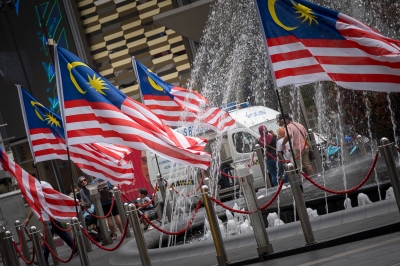KUALA LUMPUR, Jan 12 — In Human Rights Watch’s World Report 2024 launched yesterday, Malaysia scored low in seven areas: freedom of speech and expression, refugees, asylum seekers and migrants, the criminal justice system, freedom of religion, sexual orientation and gender identity, women’s rights, and environment and indigenous people’s rights.
However, HRW also acknowledged that Malaysia is moving in the right direction by abolishing the mandatory death penalty.
“The government’s abolition of the mandatory death penalty was a significant step, although capital punishment remains a sentencing option for some criminal offences.
“However, the new law retains the death sentence for drug trafficking under the Dangerous Drugs Act 1952, the most common conviction for death row prisoners,” the report said.
Advertisement
The human rights watchdog still criticised Malaysia for using broad and vaguely worded laws to straitjacket free speech.
“The new government continued to use repressive laws it had pledged to reform, including the Sedition Act 1948 and the Communications and Multimedia Act (CMA) 1998,” the human rights watchdog said citing three instances where the CMA was used and the charging of Kedah MB Datuk Seri Muhammad Sanusi Md Nor under the Sedition Act 1948 when he made remarks about the Sultan of Selangor.
The watchdog also frowned upon the decision of the Malaysian Communications and Multimedia Commission (MCMC) that banned online news portals between June and August last year to censor critical speech under the guise of combatting “the spread of false information, offensive content, and defamation.
Advertisement
Among the sites banned were MalaysiaNow, UtusanTV, Malaysia Today, and TV Pertiwi.
Films too, were a victim of the country’s vigilant effort to hamper freedom of expression as the film ‘Mentega Terbang’ was interdicted because it explored religious themes and was forced to retreat from streaming services due to attacks by religious conservatives.
Further, Human Rights Watch also underscored that Malaysia has been on a witch hunt targeting marginalised communities.
“Officials have targeted refugees and migrants as well as Lesbian, Gay, Bisexual and Transgender (LGBT) people with hateful rhetoric and crackdowns.
“In August and early September 2023, officers detained hundreds of undocumented migrants, including children, in raids,” the watchdog said in its 2024 world report.
“On July 4, Myanmar refugee activist Thuzar Maung and her family were abducted by unidentified men from their home in Kuala Lumpur. Their whereabouts remain unknown,” the report revealed.
Human Rights Watch also revealed that Malaysia does not legally recognise refugees and asylum seekers’ registration with the United Nations High Commissioner for Refugees (UNHCR) affecting around 180,000 people, which further denies them employment opportunities and education.
Until now, Malaysia is not a party to the 1951 Refugee Convention and the UNHCR has been continuously denied access to detention centres despite having an office in Malaysia.
Moreover, government funds were also used against LGBT persons such as state-sponsored conversion therapy, and the banning of all Swatch products with LGBT branding under the Printing Presses and Publications Act in August last year, Human Rights Watch disclosed.
Human Rights Watch is an independent, international organisation that works towards upholding human dignity and advancing the cause of human rights for all.
The annual world report summarises human rights conditions in over 100 countries and territories worldwide in 2023.

